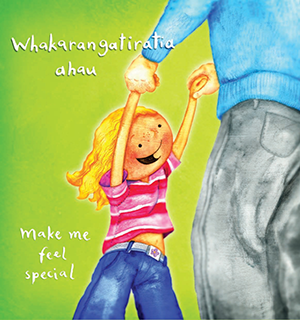
Working alongside young parents
Young parents are often sensitive to being judged, and whānau sometimes feel disappointed that their children are young parents.
The teen parent stories in Tākai have many tips about working with young parents. Their advice comes ‘straight from the horse’s mouth’ and is useful to anyone who helps others.
The key points they make are:
- treat everyone with respect
- explain your role
- be positive
- ask open-ended questions – these require more than a ‘yes’ or ‘no’ answer
- listen
- give them time.
Avoiding judgments
However, when supporting rangatahi, be aware that young people may be more sensitive to being judged.
Young people often get undeserved bad press. As the Brainwave Trust explains in Positive Youth Development, critical talk can create self-fulfilling prophesies. Young parents may ‘live up or down to the expectations they believe we hold for them’.
So:
- leave any negative thoughts and feelings at the door
- don’t assume that everything is gloom and doom
- talk with them about the positive things in being a young parent
- find out from them what’s good about their situation and their role as a parent. (This is especially important if they’re feeling worried or unsure about how they're doing.)
Here are some starter questions that might help:
- What are some of the things you’re enjoying about life at the moment?
- What are you happy about?
- How would you like to be treated?
- What are you good at?
- What makes your baby lucky?
- What are you learning about your baby?
- What are your hopes for pēpi?
- What would you like to tell other people?
- Help me understand how I can best support you.
- Is there anything I can help you with? Please let me know any time.
- How are your parents and whānau feeling?
Social attitudes towards teen parents have certainly changed in the last few decades. However, they’re not uniformly positive.
Shame and disappointment
The parents and whānau of rangatahi can still experience shame and disappointment that their daughter is pregnant or that their son is going to be a dad. They may:
- be worried that the young parent's education is being disrupted
- be concerned that they’re facing big challenges in their young lives or that they’ll be financially stretched
- be experiencing sadness that their dreams for their child are being shattered
- be upset that history is repeating itself.
Pātai atu ki te whānau:
- How are your parents taking this news?
- Why do you think that is?
- What would you like them to know?
Helpful resources for whānau
-
Parenting as a teenager
Raising Children Australia
Article and video interviews of candid young parents.
-
The difference in how we see teen mums and teen dads
Stuff
A young man, Noa Woolloff, is interviewed by Stuff talking about life as a new dad at 17.
-
Teenage parents on fast track to adulthood
Stuff
An article from Stuff, where teenage mums Jayde and Lara talk about their situations.











